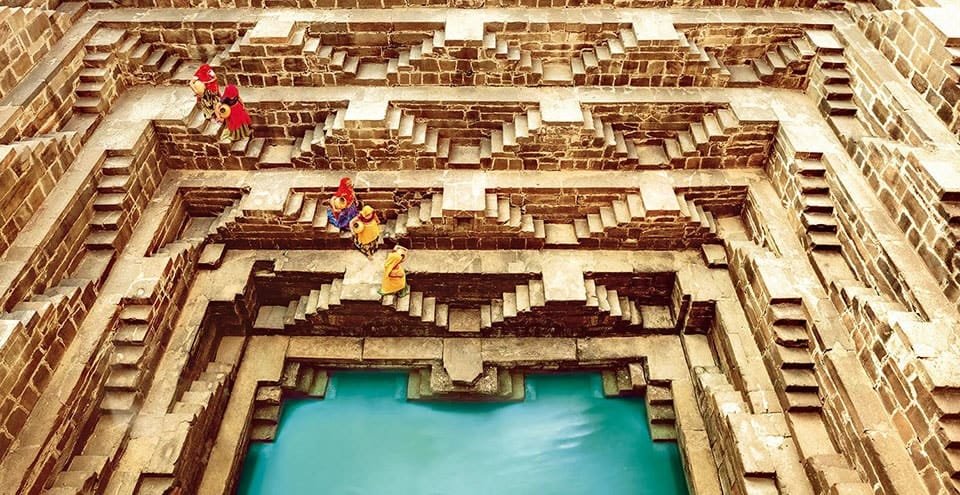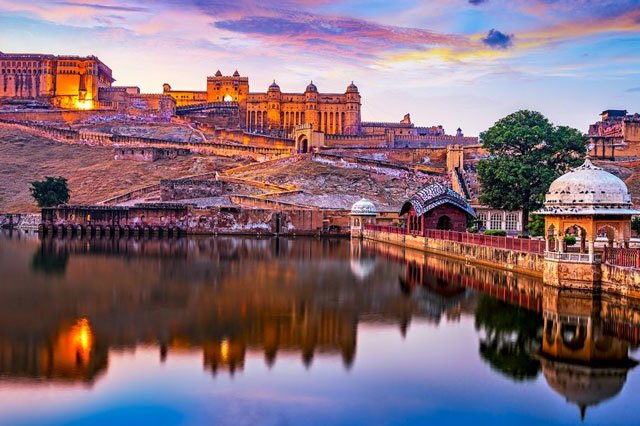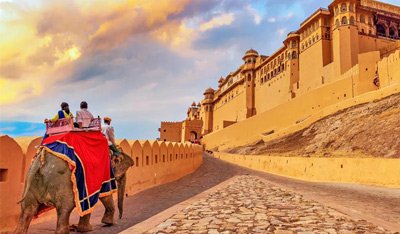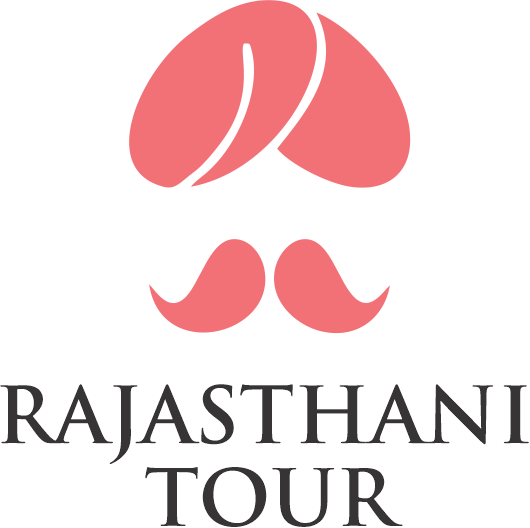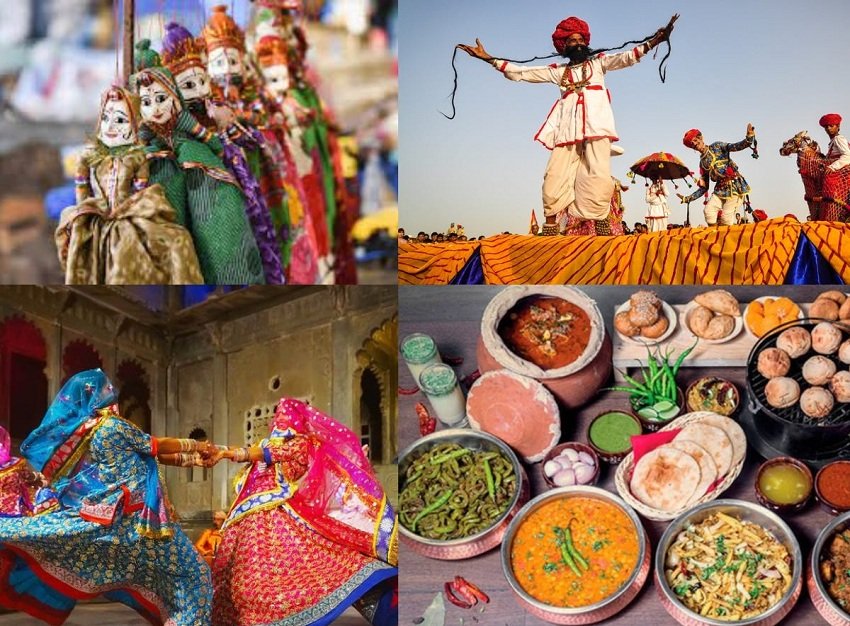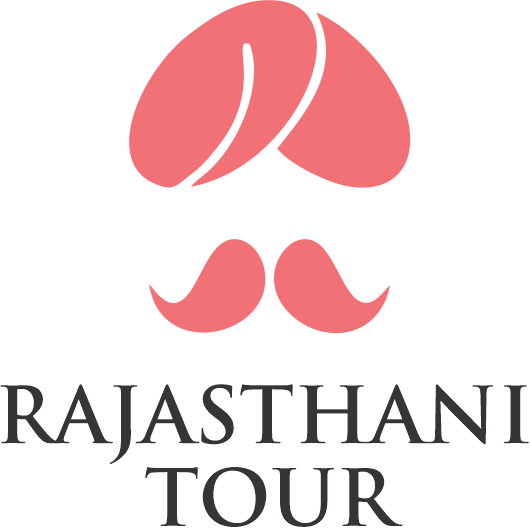Rajasthan, the “Land of Kings,” is a state in India renowned for its rich cultural heritage, vibrant traditions, and regal history. From its majestic forts and palaces to its colorful festivals and folk arts, Rajasthan offers a fascinating glimpse into India’s royal past and its enduring cultural legacy. Here’s an exploration of the key elements that define the culture and traditions of Rajasthan:
1. Royal Heritage and Architecture
Majestic Forts and Palaces: Rajasthan is home to some of India’s most iconic forts and palaces, including the Amber Fort, Mehrangarh Fort, and City Palace of Udaipur. These architectural marvels reflect the grandeur and opulence of Rajasthan’s royal history.
Havelis: Traditional mansions known as havelis, adorned with intricate carvings and frescoes, are prominent in cities like Jaisalmer and Shekhawati. These historic buildings offer a glimpse into the lifestyle of Rajasthan’s affluent merchants.
2. Festivals and Celebrations
Diwali and Holi: Like the rest of India, Rajasthan celebrates major festivals such as Diwali (Festival of Lights) and Holi (Festival of Colors) with great enthusiasm. These festivals are marked by elaborate decorations, vibrant processions, and traditional performances.
Navratri and Dussehra: Navratri, a festival dedicated to the goddess Durga, is celebrated with dance and music. The Dussehra festival, marking the victory of good over evil, is celebrated with grand processions and traditional rituals.
Pushkar Camel Fair: One of the largest camel fairs in the world, the Pushkar Camel Fair is a vibrant event where traders, tourists, and locals gather to celebrate with camel races, cultural performances, and vibrant markets.
3. Folk Arts and Music
Traditional Music: Rajasthan’s folk music includes genres like Ghoomar, Kalbeliya, and Bhavai. The music is characterized by its lively rhythms and traditional instruments such as the dholak, sarangi, and sitar.
Dance Forms: The Ghoomar dance, performed by women in colorful attire, and the Kalbeliya dance, performed by the Kalbeliya community, are popular traditional dance forms. These dances often tell stories of love, valor, and everyday life.
Craftsmanship: Rajasthan is renowned for its traditional crafts, including block printing, pottery, and intricate jewelry. The state is also known for its textile arts, including Bandhani (tie-dye) and embroidery.
4. Cuisine
Rich Flavors: Rajasthani cuisine is known for its rich flavors and use of spices. Dishes such as Dal Baati Churma, Gatte ki Sabzi, and Ker Sangri are traditional staples that offer a unique taste of the region.
Sweet Treats: Rajasthani sweets like Ghevar, Mawa Kachori, and Peda are popular throughout the state. These sweets are often enjoyed during festivals and special occasions.
Royal Feasts: The culinary heritage of Rajasthan includes royal feasts and elaborate meals served in traditional thalis, offering a variety of flavors and textures.
5. Traditional Attire
Men’s Wear: Traditional attire for men includes the dhoti or churidar, paired with a kurta or sherwani. The turban, known as a pagri, is an essential part of Rajasthani men’s attire, often decorated with intricate patterns.
Women’s Wear: Women in Rajasthan traditionally wear colorful sarees or lehengas, often adorned with embroidery and mirror work. The ghagras (skirts) and odhnis (veils) are also integral to Rajasthani women’s attire.
Jewelry: Rajasthani jewelry is known for its elaborate designs and includes items such as bangles, necklaces, and nose rings, often made from gold and embellished with gemstones.
6. Language and Literature
Languages: Rajasthani is the primary language spoken in the state, with several dialects such as Marwari, Mewari, and Dhundhari. Hindi and English are also widely used, especially in urban areas.
Literature and Folklore: Rajasthan has a rich tradition of oral storytelling and folklore. The state's literature includes epic poetry, ballads, and folk tales that reflect its history and culture.
7. Religion and Spirituality
Diverse Practices: Rajasthan is home to a variety of religious practices, including Hinduism, Islam, Jainism, and Sikhism. Temples, mosques, and gurudwaras are found throughout the state, each reflecting its architectural and cultural significance.
Pilgrimages: The state is known for its significant pilgrimage sites, such as the Ajmer Sharif Dargah, a major Sufi shrine, and the Jain temples in Mount Abu and Ranakpur.
Rajasthan’s culture and traditions offer a rich tapestry of history, art, and everyday life. Its vibrant festivals, majestic architecture, and colorful traditions continue to captivate visitors and reflect the enduring legacy of this extraordinary state.
